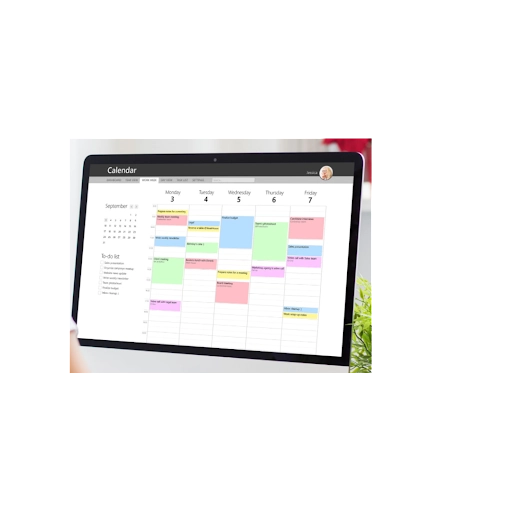Subject : for std 10 Tough outside, smart inside: Time Management
My dear students,
You are all on the brink of finishing your grade 10 from Walnut – where there are so many of us keeping a close eye on you. As your mentors and well wishers, we want to do our best to give you as much “gyaan” as we can, so that you are equipped with the skills and the resilience to manage the different challenges that life will definitely be throwing at you later on.
A very important thing that we would like to touch upon is the most valuable commodity that you have – TIME. Managing time is the biggest challenge that most adults face. This is a skill that most of the time just sorts people into the successful and not-successful buckets! It is the simplest step to take, yet the hardest – because what you need here is DISCIPLINE and focussed effort to make sure you do not waste it. Once it’s gone, you can never get it back. So, we must use it wisely.
So what do we want you to do?
We want you to think about a schedule or a timetable or a routine for yourself, set it up and follow it. We adults call it “calendar schedules” 🙂

So what do we want you to do?
We want you to think about a schedule or a timetable or a routine for yourself, set it up and follow it. We adults call it “calendar schedules” 🙂
Here is some guidance on how to do it. These are tips which will be useful to you throughout your academic life (and maybe later too!)
1.Make a list of the different things you have to do. Study, sleep, school, exercise, buffers (getting ready, meals) hobbies, random
2.Which are the absolutely fixed things with fixed times? Mark those properly.
- SCHOOL : Your start time is when you leave the house for school and your end time is when you reach back home. You also need to add your travel time here.
WAKE UP TIME : You need to consider how much time you need to get ready and adjust your wake up time accordingly.
Things to keep in mind when you are planning
- BE REALISTIC : You have to understand that this is a schedule you want to follow for a long time. So you should not burn out. You cannot allot 5 mins for a meal, for example. Or have days with no breaks. You also cannot have days of 5 hours of sleep. That is simply not going to work out!
- FLEXIBILITY : Sometimes there are unexpected events that can throw your schedule for a toss for a day or two. You may encounter traffic and take maybe 30 mins more to reach a place. You should have some buffers in your planning so you can adjust. You cannot have a plan that is very minute to minute with no scope for spillovers. You may fall sick, or need to help a family member who is sick. These things happen, and you need to factor buffers in for these too.
- STAY ON TRACK : If you have a break scheduled from say 4 to 4.20, make sure you have an alarm or something that reminds you to get back to work at 4.20. Else, your schedule will just be on paper, not implemented for real.
- CHEAT SLOT : Allow yourself one “cheat” slot a week. For example, you could decide that Friday evening you will not study. You will do other activities that you enjoy. So if you have been good from Saturday to Thursday, that is the reward you give yourself.
- UNDERSTAND YOURSELF : What are your weaknesses? Is it hard for you to get up in the morning? Are you addicted to your phone? Games? There are so many ways in which your parents can help you out with this. Tell your family and they will gladly and enthusiastically support you in your efforts to stay focused!
- REVIEW / FIX : Are you unable to follow certain blocks in your planning? Check if there is something you need to move around. After a week you should be able to figure out what works best and rearrange. Do not be scared or shy away from reviewing. Reviewing your own mistakes is hard – but that is what leads to progress!


So, once you have thought about this, try to make your own schedule. Here is a link to help you get started.
There are basically 4 types of days that you go through.
School : School – which means you have school today and you have school tomorrow
School : Holiday – which means you have school today and you have a holiday tomorrow
Holiday : School – which means you have a holiday today and you have school tomorrow
Holiday : Holiday – which means you have a holiday today and you have a holiday tomorrow
If you plan for all these, you know what schedule to follow on what day!
Make it colour coded. Decide your Cheat slot (which day of the week and which slot). Some things are filled in to give you an idea. Change it around as per your routine.
Here’s a quick checklist to make sure:
Do you have a “Cheat slot” ?
8 hrs sleep daily?
30-60 min exercise daily?
Travel time considered?
Relaxing time considered?
Social media app timers in place?
Plan your schedule and fix it by 4th August. Try your schedule out for a week. (5th Aug – 11th Aug). Fix it and check again. Make sure it is balanced and realistic. Confirm your schedule in the next week (12th Aug – 18th Aug)
Then, on 19th August you have to upload it to the Google classroom. We will send you details about exactly how and where.
And, we expect you to follow this. You made it – you better! Don’t be too surprised if you get someone from the school visiting you to check that you are indeed on track with this! 🙂
Keep getting sharper and better. We’re here to help you!
Tough outside, and (really) smart inside! That’s you.
Best wishes to you, always
Dr. Arpita Karkarey
